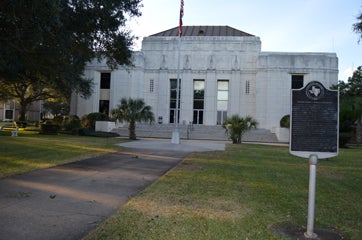Harvey may affect street improvement funding for Port Arthur
Published 4:21 pm Monday, October 16, 2017
Street improvements in the city of Port Arthur have been a topic of discussion throughout 2017.
Consequently, Anne Burger Entriken with Hilltop Securities gave a presentation at the regular meeting of the Port Arthur City Council on Oct. 10 on bonds for street improvements.
The interest rate grew from 3.61 percent in July to 3.63 percent in October, but Burger Entriken said it’s still a very low interest rate environment.
Mayor Derrick Freeman asked how municipal bonds are doing under the new Trump administration. She said municipal bonds will still get their tax exemptions.
“Interest rates have gone up because of the economy and talk of lowering taxes,” she said. “It’s possible a $5 million contribution from the city for debt service will have no tax rate increase. It’s normal for bonds be used to issue for one year and pay for them for next year. There’s no penalty in the market.”
For instance, the city could finance a bond for 10 years for $65 million, 15 years for $85 million and 20 years for $100 million.
Burger Entriken said it’s a reasonable expectation to spend 85 percent in three years when they apply for bonds under tax laws. What is left over is yield restricted.
On the other hand, the city of Port Arthur was listed in Moody’s Credit Outlook of 37 cities that may have a possible downgrade because of Hurricane Harvey. Burger Entriken added, however, she had a positive call with Standard & Poor’s Financial Services that went well. She attributed the success to the city staff being well prepared, Harvey relief is on the way and the city’s liquidity.
She also cautioned for the city to make sure they are not issuing bonds beyond the useful life of the streets.
Freeman asked if the city lowers their bond rating how far off will the number be. Burger Entriken said she hopes it’s only one notch. For example, 10 basis points “that’s not a significant number.”
Harold Doucet Sr., District 4 councilman, asked what would be the city’s best choice with all of these factors when she returned to report to the city council, particularly if interest rates will only increase.
She advised it will be the same for the city if they go for 10 years or 15 years.
Willie “Bae” Lewis Jr., District 5 councilman, asked what they could do in three years. City manager Brian McDougal said some engineering can be done in-house. The larger projects must be done with outside engineering. He added that he will get that information to the council.
Burger Entriken said the city can’t earn more than what they’re paying on bonds.
Doucet said major thoroughfares need to be addressed with contractors. He added that $60 million spent on streets in Port Arthur will still not go that far.
“Three major thoroughfares will cost at $2 million apiece. We can’t just rely on us doing them. We don’t have enough with just $60 million,” he said.
Raymond Scott Jr., District 1 councilman, said they need a workshop with a starting plan and a Plan B too.
Lewis said the city will get other monies from the storm that will parallel with the $60 million.
“It’s unlimited how much is out there from the feds,” Lewis said.
In other council business, Tim Romero chairman of Mardi Gras 2018, said the festival pumps in $1.3 million back into the local community from sponsors. He cautioned, however, for-profit vendors outside the gates are harming the festival while vendors must pay a fee to operate inside the gates.
Lastly, Doucet requested a discussion regarding presentations by citizens. He asked why a city councilmember must give permission to sign off so they may be placed on the presentations list.
Freeman said a five-minute minimum was ample time for citizens to make their presentation. If they need to speak for 20 minutes they need some vetting so meetings won’t be so lengthy.
Doucet said citizens have a right to do a presentation like a businessperson would.
Freeman said currently a citizen can speak for five minutes and the council can vote to add more time to allow them to speak.
Doucet said lengthening meeting times should not be a factor.
City attorney Val Tizeno said in the past salespeople would get on the council agenda and extend the meetings.
“There were few parameters,” she said.
Doucet asked what if the presentation is beneficial for the city and the citizen is not allowed enough time to finish.
Lewis said if the policy is abused, the council can then do something about the matter.





